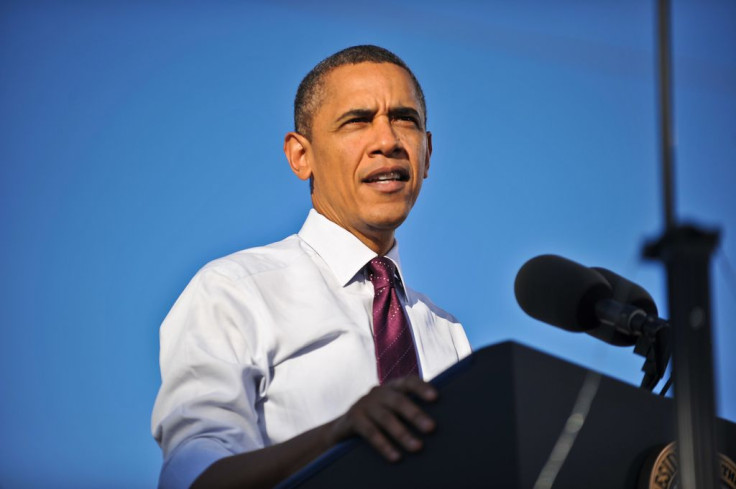Obama Says Health Care Law 'Here To Stay'

Known widely as "Obamacare," the federal overhaul of the American health care system is "here to stay," President Barack Obama declared on Friday.
The Patient Protection and Affordable Care Act of 2010 will bring millions of Americans health insurance coverage by expanding Medicaid eligibility to include adults with income at 133 percent of the federal poverty line, repealing anti-trust exemptions for health insurers, and prohibiting insurers from discriminating against people with pre-existing health conditions.
The Obama administration and congressional Democrats promised the overhaul would also cut waste and save the government $400 billion in costs over a 10-year period.
As the law begins to take full effect, Majority Leader Rep. Eric Cantor, a Republican from Virginia, said the U.S. House of Representatives would take yet another vote to repeal the law, following more than 30 attempts since March 2010.
"It just keeps getting worse," Cantor announced by Twitter on Friday. "I am scheduling a vote for next week on the full repeal of #Obamacare."
In an effort to protect the Affordable Care Act, the White House prepared a campaign-style initiative to encourage healthy younger Americans to purchase insurance coverage to keep premium prices stable. The White House's stated goal is 7 million younger Americans enrolled by the end of March and 30 million within 5 years, bringing health care coverage in America closer to universal. According to administration officials, a third of their target demographic for enrollment resides in California, Texas, and Florida — approximately half of whom are racial-ethnic minorities.
"There's a lot that this law is already doing for Americans with insurance," Obama said. "There's a lot more that's going to happen for folks who don't have insurance."
The final leg of the campaign-style race for expanded health coverage will most likely be met with bitter opposition from conservatives. More than 40 percent of Americans polled by the Kaiser Family Foundation are unaware of the current law, with 12 percent believing it's been repealed.
Senate Minority Leader Mitch McConnell, a Republican from Kentucky, criticized the president's remarks on Friday. "Women and families don't need Obamacare's higher costs, 20,000 pages of red tape and regulations, or to be forced off plans they currently have and like, in order to get cancer screenings or other preventive care," he said in a statement. "As implementation draws closer, the President owes it to these women and all Americans to be straight about those consequences. Rather than another campaign-style event, the President has an obligation to warn all Americans about the train wreck that's headed our way."
In agreement, The Washington Post's conservative columnist Charles Krauthammer chastised the administration this week for what he called a misrepresentation of the numbers:
"Obamacare was carefully constructed to manipulate the standard 10-year cost projections of the [Congressional Budget Office]. Because benefits would not fully kick in for four years, President Obama could trumpet 10-year gross costs of less than $1 trillion — $938 billion to be exact. But now that the near-costless years 2010 and 2011 have elapsed, the true 10-year price tag comes into focus. From 2013 through 2022, the CBO reports, the costs of Obamacare come to $1.76 trillion - almost twice the phony original number."
In contrast, Post columnist Nancy-Ann DeParle wrote:
"Critics say the law fails to bring down health-care costs. A review of the facts is in order. If you get insurance at work, the new law will not disrupt your coverage or make it more expensive. And premiums will fall for the overwhelming majority of consumers in the new marketplaces as coverage expands, administrative costs are reduced and discrimination based on gender and age is curbed. In 2014 alone, 6 million Americans will get tax credits, making health insurance more affordable."
DeParle further said the administration's health care policies are a primary reason for the slowdown in the growth of health care costs, to the lowest growth rate in 52 years.
The U.S. Supreme Court last year upheld the constitutionality of the mandate requiring Americans to purchase health insurance in a free-market system, an integral component of the law.



























